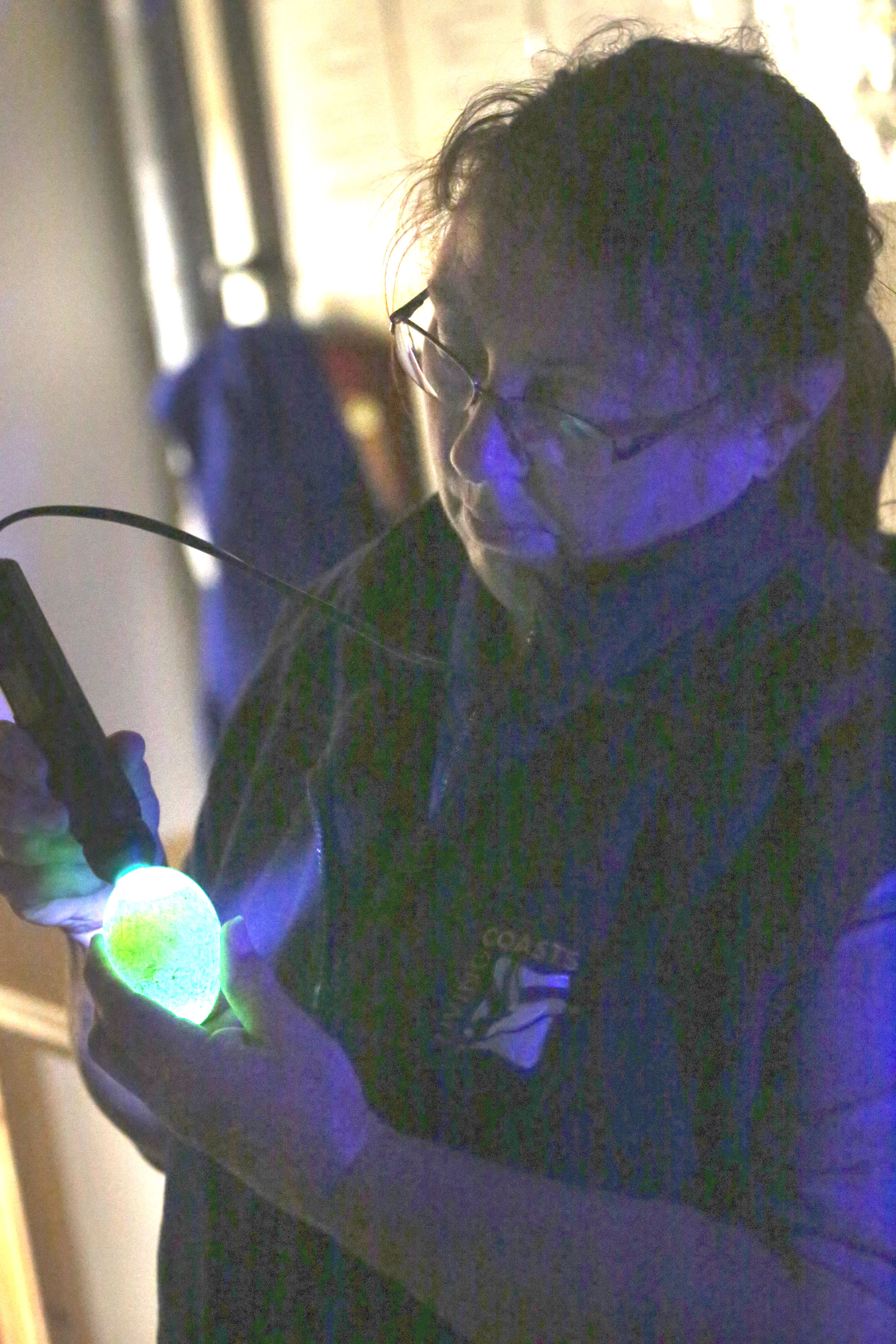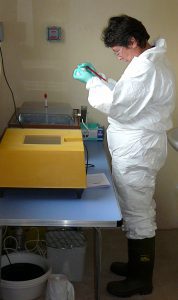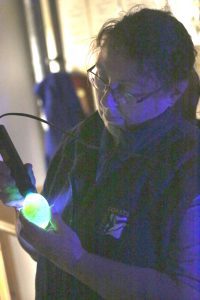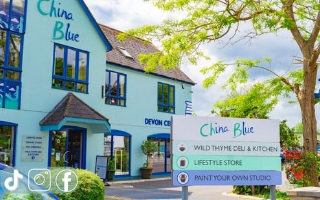Penguins at Living Coasts in Torquay are taking it easy this Spring as zoo keepers lend a hand incubating eggs. But staff aren’t taking turns to sit on the nests on Penguin Beach – they’re using their knowledge – and a little technology.
Staff are taking abandoned eggs from the nests of macaroni penguins at Torquay’s coastal zoo and replacing them with fakes made of turned wood and painted to encourage the birds to keep sitting. The real eggs are placed in a specialist incubator – but when they are almost ready to hatch they’re returned to the birds.
Clare Rugg, Operations Manager at Living Coasts: “This is a great way to avoid any accidental damage, as it is very easy for parent birds to break eggs by standing on them or cracking them against stones. Also, inexperienced birds sometimes don’t spend enough time incubating. But parent reared young are always preferable, which is why we put them back so they hatch naturally.”
Senior Head Keeper of Birds Lois Rowell: “We take eggs if we think there is no possibility of the parents rearing them themselves. We have done this with African penguins, macaroni penguins, avocets, redshank and pigeon guillemots. Our first ever Inca tern egg was incubated artificially when it was found abandoned on a rock ledge. That bird we named Manco and he is a father himself now.
“With the macaroni penguins, we’re trying to build up the colony – the original birds are getting quite elderly now.” The time eggs spend in the incubator varies. Lois: “Milly’s first egg was in the incubator for only a few days, Milly and partner discarded it on laying the second egg – this is normal for macaronis. It seemed undamaged so I took it and placed it in the incubator. With macaroni penguins, the first egg is rarely fertile. Other eggs will be in the incubator for longer. Interference is kept to a minimum, it really is a last resort as natural rearing is always best.”
An incubator maintains a required temperature and humidity and will turn the egg at required intervals day and night. For more information go to www.livingcoasts.org.uk or ring 01803 202470.




























